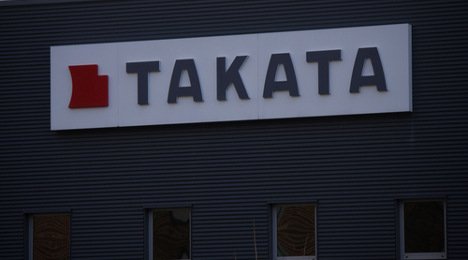Takata awareness ranks lowest among current events

Photo credit: 360b / Shutterstock.com
By subscribing, you agree to receive communications from Auto Remarketing and our partners in accordance with our Privacy Policy. We may share your information with select partners and sponsors who may contact you about their products and services. You may unsubscribe at any time.
IRVINE, Calif. –
The Zika virus, Hillary Clinton’s emails, global warming and the presidential election.
Each of these current events/issues has a significantly higher rate of general public awareness than does the Takata recall, according to Kelley Blue Book.
A study from KBB parent company Cox Automotive found the public had lower awareness of the Takata recall (52 percent) than any other issue/current event examined.
Meanwhile, awareness of Zika is at 84 percent, Clinton’s emails is at 87 percent, global warming is at 83 percent and the presidential election is at 95 percent.
Certainly all important issues, but the same certainly could be said for the Takata issue.
That perhaps makes the significant gap in awareness or concern around Takata all the more striking — especially considering the historic gravity of the situation.
Subscribe to Auto Remarketing to stay informed and stay ahead.
By subscribing, you agree to receive communications from Auto Remarketing and our partners in accordance with our Privacy Policy. We may share your information with select partners and sponsors who may contact you about their products and services. You may unsubscribe at any time.
“The airbag recall isn’t getting the kind of media coverage these other issues are getting, and it’s not an inherently interesting or dramatic topic,” KBB senior analyst Karl Brauer said in comments emailed to Auto Remarketing. “Ironically, it has a far higher potential to negatively impact the average consumer than any of these other high-profile issues.”
As of June 2, more than 32 million vehicles have been recalled because of the Takata airbag issue, KBB said.
If you took the next five largest recalls from the past 20 years, their combined number of vehicles impacted would not reach that level, according to the KBB analysis.
The Takata issue is also one that impacts 33 brands.
Yet less than a quarter of the people surveyed found it to be a very or extremely important issue.
And here’s the kicker: Even among the people who are familiar with the Takata situation, less than a third are very concerned or extremely concerned about it.
That compares to 49 percent who feel that way about Zika, 78 percent regarding the presidential election and 79 who are very/extremely concerned about terrorism.
“Consumer opinions on the Takata airbag recall seem to be another unfortunate case of people thinking ‘it won’t happen to me,’ but this is easily the largest, most expensive automotive safety issue in U.S. history,” Brauer said in a news release.
“In fact, one in eight vehicles on the road are affected by this massive recall,” he added, citing a calculation via Experian data on vehicles in operation, “yet 33 percent of those surveyed don’t know if they are impacted.
“It is vital that all households look up their vehicle’s status on the National Highway Traffic Safety Administration (NHTSA) website safercar.gov and check with their manufacturer,” Brauer said. “In vehicles impacted by the Takata recall, the front airbags of the vehicle that are intended to protect riders in the event of a collision, may actually wind up causing injury and/or death by deploying incorrectly.”


